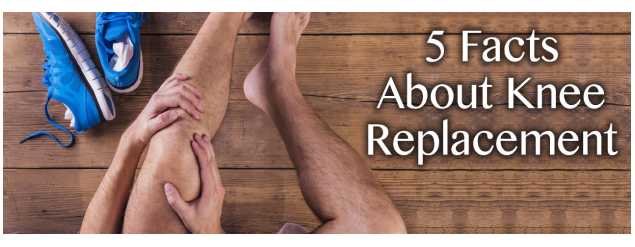Wear and tear on joints is a normal part of the aging process, as are the unavoidable aches and pains that accompany it. Knee pain is one of the most common joint problems, so today we’re sharing some important facts about knee replacement in New Orleans.
While in the past many people put off seeing a doctor for knee pain, today’s active adults are seeking relief with total knee replacement surgery. People who can’t perform their daily activities due to knee pain are often good candidates for this surgery.
Throughout a total knee replacement, an orthopedic surgeon eliminates deteriorating joint surfaces and a portion of bone in the knee and then replaces them with metal and plastic implants that typically last about 20 years.
What do you need to know about knee pain and knee replacement in New Orleans?
- Damage to the knee can result in joint deterioration. The most common reason for knee replacement is knee pain from osteoarthritis, rather than a certain trauma to the knee. An injury to the knee that damages knee ligaments does not typically result in issues with the joint surface. Orthopedic surgeons normally treat these injuries with ligament reconstruction, immobilization and/or rehabilitation. To avoid damaging your knee ligaments, limit high-impact activities.
- Knee replacement surgery in New Orleans has improved over the years. Knee replacement surgeries are more reliable now thanks to new techniques, technologies and materials. Today’s instruments greatly assist orthopedic surgeons by showing them precisely where to cut to place the implant in the proper location.
- Surgery is not the only possibility. There are numerous noninvasive treatment options to try before surgery. Some of these treatments include physical therapy, medications to reduce pain and swelling and the use of a device such as a cane.
Another option is partial knee replacement, which is designed for people whose osteoarthritis is limited to just one part of the knee. During this procedure, orthopedic surgeons replace only the damaged part of the knee, while the healthy cartilage and bone in the knee remain in place.
- Exercising and losing weight can help diminish knee pain. Obesity raises the risk of osteoarthritis in the knee because it elevates pressure on the knee joint. Many obese people do less physical activity, which creates a loss of muscle that is meant to surround and protect the knee joint. While knee pain may make it difficult to exercise, certain physical therapy exercises can help strengthen muscles in ways that can minimize the discomfort in the knee.
- Minimally invasive knee replacement in New Orleans is being tested. Minimally invasive knee replacement uses a smaller incision and attempts to minimize damage to the soft tissues around the knee. Some studies have shown that this procedure may result in less blood loss, shorter hospital stays and better motion than traditional surgery, and the long-term success is being monitored.
Would you like to know if a knee replacement in New Orleans is a good option for you?
Call our office today to Schedule a Consultation so we can determine if you are a candidate!
